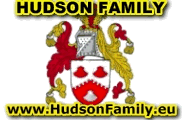General Info
|
|
|
|
|
GENERAL INFORMATION
|

Census Record Dates:
|
Available to the Public:
(*Census prior to 1841 did not record family names)
|
1801 Tue 10 Mar*
|
1811 Mon 27 May*
|
1821 Mon 28 May*
|
1831 Sun 29 May*
|
1841 Sun 6 Jun
|
1851 Sun 30 Mar
|
1861 Sun 7 Apr
|
1871 Sun 2 Apr
|
1881 Sun 3 Apr
|
1891 Sun 5 Apr
|
1901 Sun 31 Mar
|
1911 Sun 2 Apr
|
 |
 |
 |
 |
Still to be released:
(Covered by the 1958 Census Act)
|
1921 Sun 19 Jun
|
100 year closure - publication date 1 January 2022
|
1931 Sun 26 Apr
|
Destroyed during WW2
|
1939 Fri 29 Sep
|
WW2 National Registration - 100 year closure - publication date 1 January 2040
|
1951 Sun 8 Apr
|
100 year closure - publication date 1 January 2052
|
1961 Sun 23 Apr
|
100 year closure - publication date 1 January 2062
|
1971 Sun 25 Apr
|
100 year closure - publication date 1 January 2072
|
1981 Sun 5 Apr
|
100 year closure - publication date 1 January 2082
|
1991 Sun 21 Apr
|
100 year closure - publication date 1 January 2092
|
2001 Sun 29 Apr
|
100 year closure - publication date 1 January 2102
|
2011 Sun 27 Mar
|
100 year closure - publication date 1 January 2112
|

The first census was taken in 1801 and after that every 10 years with the exception of 1941 (although equivalent information was gathered in 1939 for National Registration). However the censuses of 1801, 1811, 1821 and 1831 are of limited use to family historians because they did not record the household names although in a few cases names were kept locally and can be found at local record offices.
From 1841, the census returns for England and Wales were compiled using the same system of registration districts and sub-districts that was used for the registration of births, marriages and deaths. Each registrar’s sub-district was divided into a number of enumeration districts, each of which was the responsibility of an enumerator. The enumerator delivered a form known as a schedule to each household a few days before census night, and collected the completed schedules the day after (or if nobody in the household could read or write, presumably complete the schedule there and then). The schedules were then sorted, and the details copied into the census enumerators’ books. It is these books which have survived and which can be seen today on microform, or in many cases digitally online. The original householders’ schedules were later destroyed. Special schedules were provided for vessels and institutions. The census records everyone present in the household at midnight on the day of the census.
The 1841 census recorded people's names, age, sex, occupation, and if they were born "in county". Children under 15 were to have their age recorded accurately, while those over 15 were to be rounded down to the nearest 5 years so, for example, someone aged 63 should be recorded as aged 60. However, not all enumerators followed this instruction and exact ages may have been recorded.
The 1911 census became available now for searching online on 13th January 2009: www.1911census.co.uk
The latest census available to the public was the eagerly awaited 1911 census. In recent years, census information has been closed, certainly for family history purposes, for 100 years. The National Archives were planning to make the 1911 census available in January 2012 but a ruling by the Information Commissioner in December 2006 meant that the National Archives was forced to make the information available in 2009.
A caveat on this is that "personally sensistive" information will not be available until 3 January 2012. This includes "details of infirmity or other health-related information, information about family relationships which would usually have been kept secret and information about very young children who were born in prison".
Census Details: The details recorded for each person were:
* Name and surname
* Relationship to head of family
* Age - this was recorded in separate columns for male and female
* Marital condition
* Number of years married (present marriage, question only answered by married women)
* Number of children born to present marriage, number that are still living, number who have died. (again present marriage, married women only)
* Personal occupation
* Industry/service with which worker is connected
* Employment status
* Birthplace
* Nationality (if born in a foreign country)
* Infirmity, one of deaf, dumb, blind, lunatic, imbecile or feeble minded. The age at which the "infirmity came on" was also required. This information is considered personally sensitive and became available inl 2012.
|





